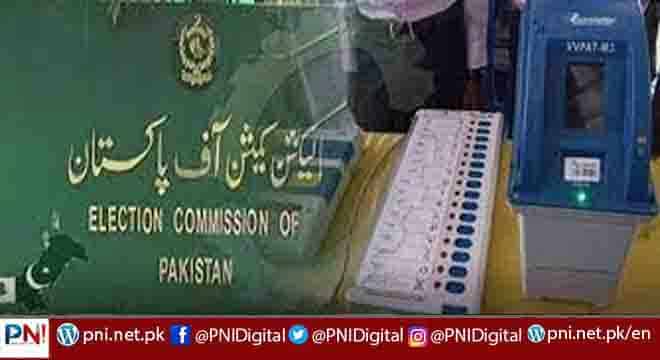ISLAMABAD, Jan 30 (APP):Technology driven innovations have played a significant role in rapidly transforming the democracies globally during the last few decades and reshaping the entire governance system.
Pakistan’s adoption to a universally acknowledged way of conducting elections through Electronic Voting Machine (EVM) is another move towards flourishing democracy, empowering citizens and countering electoral frauds.
The way idea of neutral umpire floated by the Prime Minister, Imran Khan once proved as a turning point for the history of cricket by ending controversies and ensuring impartiality; EVM will emerge as a neutral technology to ensure transparency in the electoral process.
The governments in the past have been reluctant to go for transparent voting systems due to their own objectives; however, the Pakistan Tehreek-e-Insaf led government proved to be different and turned its slogan of `change’ into a reality when it floated the idea of EVM to ensuring undisputed and fair elections.
The efforts for introducing EVM technology to conduct free and fair elections in the country initiated soon after the PTI government came into power.
The task of evolving an indigenous prototype of EVM was given to the Ministry of Science and Technology to resolve the longstanding issue of disputed and non-transparent elections.
“The target of developing the prototype of EVM was given on April 15 which was completed on July 15. We have developed a prototype in the short span of three months and given flawless demonstrations to the Prime Minister, President, Parliament, Chamber of Commerce, universities and masses” Federal Minister of Science and Technology, Shibli Faraz said.
The joint session of the Parliament passed the Elections (Amendment) Bill, 2021 and the Elections (Second Amendment) Bill, 2021 regarding use of Electronic Voting Machines (EVMs) in the month of November, last year. The passage of the amendments allowed the use of EVMs as well as granting voting rights to overseas Pakistanis.
The legislation made it mandatory for the Election Commission of Pakistan (ECP) to hold elections through EVM. Soon after the legislation, ECP expressed its willingness to conduct upcoming local government elections through EVM, asking the Ministry of Science and Technology to provide 3,900 EVMs for the purpose.
Shibli Faraz said, “Around 3,900 EVMs would be provided to the ECP before the upcoming LG elections in Islamabad, expected by the mid of April. A total of 3,100 EVMs were required for the LG elections in Islamabad however additional 800 EVMs, to be provided, will be for the backup purpose”.
The machines will be developed by a company named Rapidev based in the National Science and Technology Park of National University of Science and Technology (NUST).
“Use of EVM technology in LG elections in Islamabad would be an opportunity for ground testing of this technology for the general elections and prove that conducting elections through EVM is possible”, the minister observed.
EVM will make the electoral process undisputed, non-controversial and acceptable for all and change the electoral history of the country through ensuring fair and transparent elections. It would help expedite the vote counting mechanism and early announcement of results.
According to Shibli Faraz, “The total cost of Rs. 60 to 62 billion could be incurred on manufacturing of Electronic Voting Machines (EVMs) for the `General Elections 2023’ in the country, as per rough estimates”.
“Since the EVMs are not disposable and can be used in all kinds of elections like local government, bar council and other departments; the cost is justified”, the minister observed.
Former Secretary of ECP, Kanwar Muhammad Dilshad said the project of EVM was under-consideration in ECP for the last 15 years but could not be implemented due to the unwillingness of the previous governments.
Since he was serving in the ECP, a lot of work on EVM was done but could not be carried forward due to the lack of seriousness of the then government, he said. “EVM is the best solution to curb the electoral fraud and irregularities.”
Although the government reiterated its commitment time and again to introduce EVM in next elections, it encountered resistance by the opposition parties. However, voters think that whatever the objections of the opposition parties may be, they should come up with constructive suggestions to carry forward this initiative of the government.
“Since decades we have been hearing the allegations of rigging after almost every election. If this system would root this menace, then why not to give it a try,” said Rashid Mahmood, a voter who used to cast vote in every election.
“Post election allegations of rigging and protests by losing parties had weakened democracy in the country. If we can do away with this culture by using EVM, it would be a win-win situation” he added, saying if all contesting parties do not pose confidence in election results, electioneering seems like a futile exercise.
Follow the PNI Facebook page for the latest news and updates.









